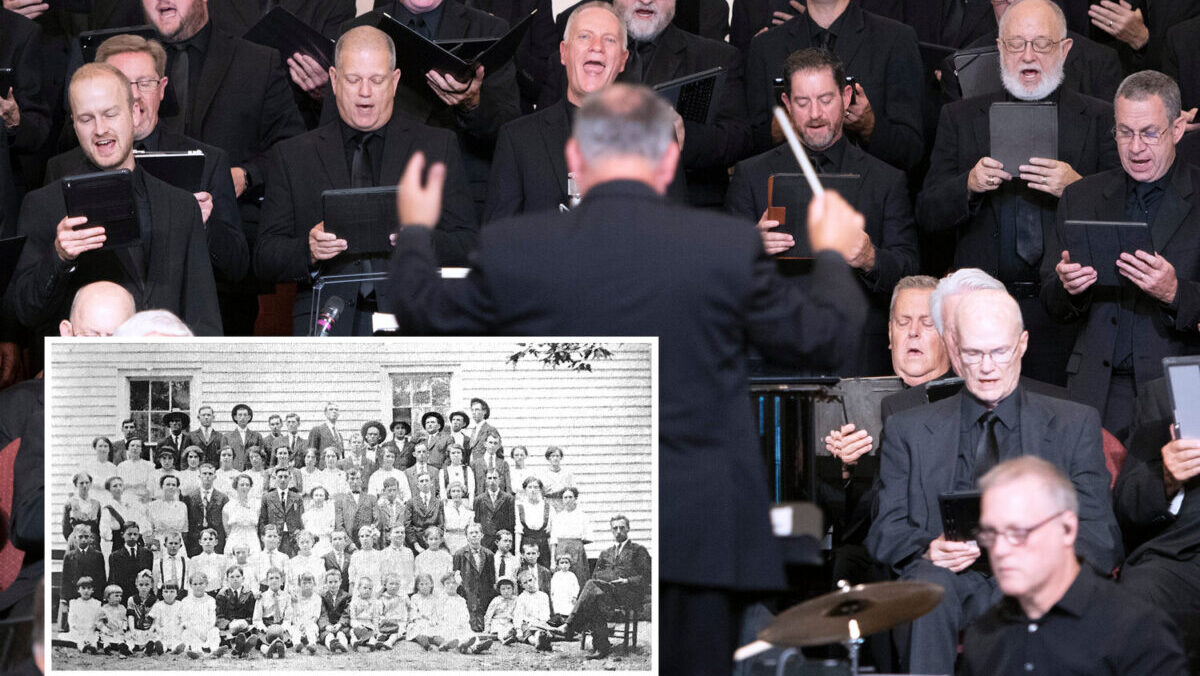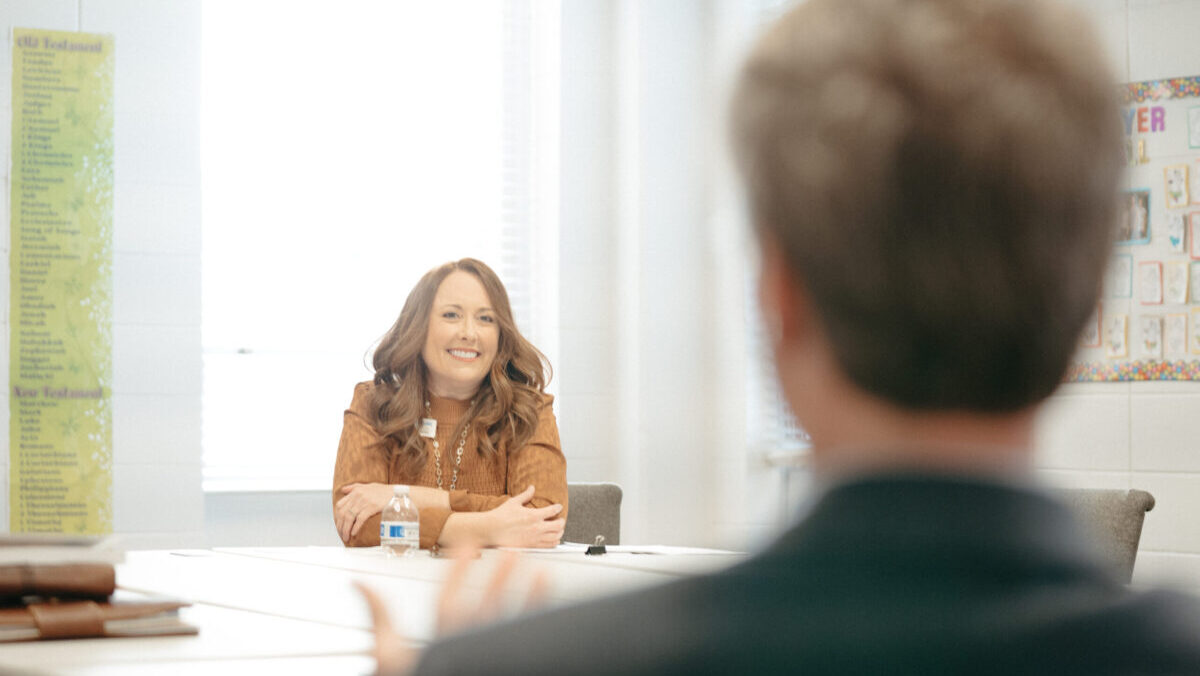Few today recognize the impact “singing schools,” which used “shape-notes” to teach music, has had on American worship. This music, which is associated with the tradition of “Sacred Harp Singing,” enhanced worship across the nation.
Singing schools began in New England in the late 18th century. Their purpose was to raise the quality of music in worship services by teaching people to sight read and lead music. Much of the music in churches at the time was so poor that it was more of a distraction than a means of worship. Church music was sung “a cappella” (without musical instruments). The instrument used was one’s voice or the “sacred harp.”
Instruments, piano or pump organ, were not common in Baptist churches of the South until the later portion of the 19th century. The most common instrument of the era was the fiddle, which was not considered appropriate for worship. Jesse Mercer called it “the devil’s tool.” Because where there was a fiddle, there was usually a party and dancing!
RELATED: Check out more stories on music and worship here.
In 1810, Mercer published a popular hymnal titled “The Cluster.” The hymnal, which was typical of the day, did not include a musical score. The words along with a poetic meter were printed for each hymn and a corresponding list of tunes for each meter was listed in the back of the hymnal. The introduction of shape-notes would lead to the printing of hymnals which included musical scores.
According to an interview with Marlow Propes (1900–1982) of Hall County, Georgia published in 1981, the singing schools of his youth were typically one or two weeks in length. They were held during the “laying by” season on the farms in the late summer or early fall. He said classes were held at either a school, church or “brush harbor,” which was an open sided structure providing ventilation and some relief from the heat. They usually began at 9 a.m. and ended around 3:30 p.m., and students brought lunch each day. Ages ranged from preschool through senior adults, although he noted, there was a “bulge” in the number of those of “courting age.”
Propes explained that the schools employed a “professor” to teach. The professor lodged at a local home during the school session. Pupils paid a fee, which in the early 20th century was typically a dollar, and could purchase a music book for 35 cents. He said his father had taught him to read shaped notes before he attended his first singing school. He attended three schools during his lifetime.
‘Alive and well’
“The singing school tradition is still alive and well,” according to Jim Duren, who is on the board of the North Georgia School of Gospel Music. Duren met his wife Kathy, who is on the music faculty at Truett McConnell, at a singing school. He said there are nine active singing schools across the South. Last year’s North Georgia School of Gospel Music was held in June and had over 250 enrolled, ranging in age from preschoolers to 88 years old.
Duren said singing schools taught either a four note (fa, so, la, mi) “Sacred Harp or Christian Harmony” method, which was primarily used in non-instrumental churches. Later a seven note (do, re, mi, fa, so, la, te, do) “Convention Style” method was developed for churches using instruments. Each shape corresponded to a note on the music score. Musicians would sing through the song once, singing the shapes to review their parts, then continue to sing the hymn inserting the words.
Students learned to sight read and were taught to lead singing. They learned to sing in four-part harmony. Each person learned to read and sing the line corresponding to their range of soprano, alto, tenor and bass.
Hymnals, which began to include scores using the shapes, were called “shape note hymnals.” Several of note include “Walker’s Southern Harmony,” and “The Sacred Harp.” The latter was published in Georgia in 1844 which provided a name for the style of singing.
At the end of each singing school, a “singing” was held. The community was invited to listen and sing along. New and old songs were sung, new skills demonstrated, and some students were given the honor of leading.
Singing schools began to wane after World War II. Flat Creek Baptist in Gainesville, where Marlow Propes grew up, discontinued theirs in the early 1950s. Belmont Baptist in Hall County where the Durens were members discontinued theirs around 2000. Increasingly, music was being taught in public schools and throughout the 1950s after the establishment of the Georgia Baptist Convention Music Department, local churches were moving towards graded choirs and new styles of worship music.
Hope
Singing schools contributed to the development of “gospel music” as an expression of worship. It was gospel music which helped infuse hope in God’s people during difficult seasons of economic toil. The gospel songs focusing on heaven provided a message of hope when things were difficult on earth below. Arguably much of the upbeat worship music today is descended from the foot-tapping gospel music of an earlier generation.
Furthermore, singing schools impacted the development of American folk music with its rich, close harmonies. The Shaker hymn “Simple Gifts” reflects the harmony and simple rhythms taught in singing schools. This same harmony was reflected in the folk music revivals of the 1950s and 1960s.
Country music was impacted by the Carter Family’s harmony, which was shaped in rural mountain churches of southwest Virginia. A generation later the Statler Brothers, known for their rich harmony, began as a gospel quartet before crossing over to secular. Both groups reflect many secular groups whose can trace their roots to the legacy of the singing schools.
The impact of these schools has left a legacy on both worship and secular music. The poor quality of music, which had been a distraction in worship, was replaced by harmony, a four-part harmony which literally contributed to harmonious worship. In turn those who attended singing schools became worship leaders, in the pulpit, pew or choir.
In June of 2024 the North Georgia School of Gospel Music will be hosting their next singing school at FBC Cumming. As was the purpose of earlier schools, it will help people learn to worship and lead in worship that will honor God. They will be keeping alive a tradition that still reminds worshipers today, that the voice is a “Sacred Harp” which was given to honor and worship God.
EDITOR’S NOTE — This story was written by Charles Jones and originally published by the Christian Index.








